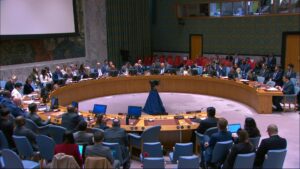India’s apex court says Kashmir part of India after ruler’s accession
NEW DELHI, India – The Supreme Court of India on Thursday observed that the disputed state of Jammu and Kashmir became part of India after its ruler gave nod to accession in 1947.
Chief Justice Dhananjaya Yeshwant Chandrachud made oral remarks while hearing petitions challenging the Hindu nationalist government’s revocation of special status and statehood on Aug. 5, 2019.
The judge said there was no conditional integration of Jammu and Kashmir into India.
He said the only limitation and debatable issue is whether the Indian Parliament has the power to make laws for Jammu and Kashmir.
He said Article 370 of the Indian Constitution, which was scrapped four years ago, did not retain some element of sovereignty with Jammu and Kashmir.
After India and Pakistan gained independence from British rule in 1947, the Hindu king of Jammu and Kashmir, Maharaja Hari Singh, acceded to India.
Senior Advocate Zaffar Shah, appearing on behalf of one of the petitioners, claimed that the Indian government had no authority to legislate for the former state.
He also pointed out that the special status was granted to Jammu and Kashmir because there was no merger agreement and the autonomy of the state had to be preserved.
During the hearing, Justice Sanjay Kishan Kaul observed that the “real question” was whether the procedure adopted by the federal government to repeal Article 370 was permissible or not.
The Muslim-majority region of Kashmir is fully claimed by both Pakistan and India, but is only partially administered in each case.
Pakistan considers New Delhi’s 2019 move illegal and has since downgraded diplomatic relations and suspended trade.
Hearing of petitions filed by several individuals, groups and political parties will continue till the end of this month.









